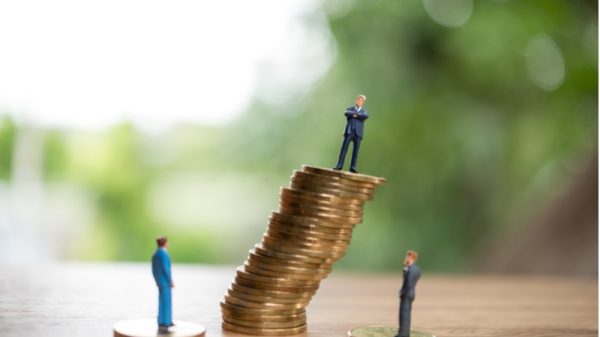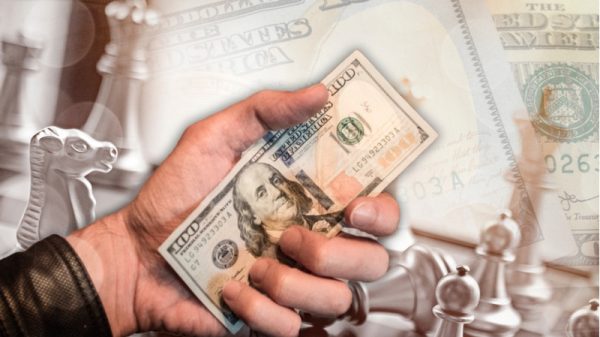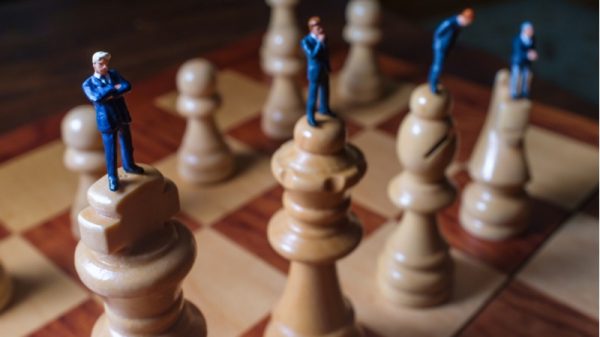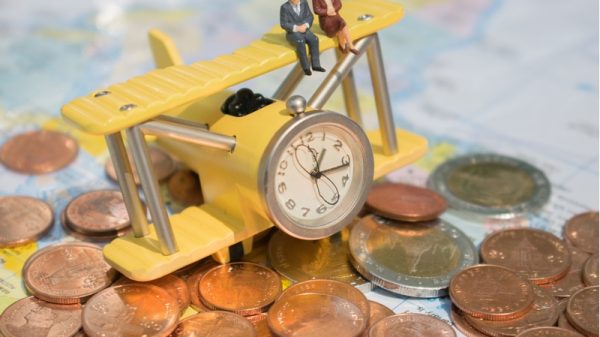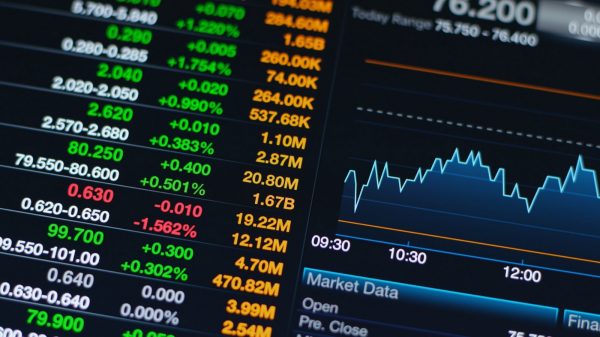BENSALEM, Pa.— Staffing the front desk of a Hindu temple in this Philadelphia suburb, Jitendra Shah broke out into a smile at the mention of Kamala Harris’s name.
He is a registered Republican, he said, and his wife is a registered Democrat. Both are thrilled about Harris, whose mother emigrated from India and father from Jamaica, being at the top of the ballot. Party affiliations mean little in this election, he said.
“We are all excited and hoping [Harris] makes it,” he said, referring to the Indian American community. “We’ll do anything to ensure she gets it: the first woman, the first woman of color.”
Shah, a retired physician, said that he donated to Harris’s campaign within a day of President Joe Biden dropping out of the race. Like Harris’s mother, he’s an immigrant from India too, he said. “She will do wonders.”
Harris’s challenge now is to spread that enthusiasm. In an immigrant community stratified by religion, language, caste and class — and whose political divides in the United States often mimic the fissures back home — Harris’s background has been embraced by some but rings hollow for others. Some view Harris as Black, but not Indian American, and say her identity matters less than policies; others contend that Donald Trump would be better for small business owners; while some worry Harris won’t prioritize a strong American relationship with Indian Prime Minister Narendra Modi, a Hindu nationalist.
Some like Ali Khan, 48, remain enraged by the Biden-Harris administration’s response to the war in the Gaza Strip. “I felt very proud, as an Indian, seeing an Indian at that level, so successful,” Khan said as he and other congregants recently left a mosque built into an old fire station in Bensalem, Pa. “But I was disappointed as a Muslim.”
Both Republicans and Democrats face big challenges in reaching these voters, in part because they speak a multitude of languages — including Hindi, Tamil, Gujarati, Urdu, Punjabi and Kannada. Many Indians’ favorite method of communication is WhatsApp group chats, not Facebook or Instagram, making them potentially harder to reach. There are also few centralized spaces to reach the diverse Indian American community in person, because places of worship run the gamut: temples, mosques, gurdwaras and churches.
But the payoff of courting the Indian American vote could be significant, especially in Pennsylvania, which Trump won by a slim margin in 2016, about 44,000 votes, less than 1 percent of the 6.2 million votes cast, and Biden secured with a margin of about 80,000 votes in 2020, about 1 percent of the 6.9 million cast. There are about 100,000 to 120,000 Indian American registered voters in the state, according to the advocacy groups Asian Pacific Islander Political Alliance and Indian American Impact. About half identify as Democrats, 25 percent as independent and 21 percent as Republicans.
Recent polling averages show that Harris and Trump are tied in Pennsylvania.
“Any voting bloc of a decent size like that is going to matter,” said Dan Mallinson, a political science professor at Penn State Harrisburg. “If they’re energized to get out the vote, potentially, this could shift things.”
Nationwide, Asian Americans are among the fastest-growing groups of eligible voters. Voter turnout among Asian Americans overall surged in the last presidential election, from 48 percent in 2016 to 62 percent in 2020, according to a Washington Post analysis of census data.
Harris’s campaign said it is making concerted efforts to reach Asian American voters. That includes holding cultural events and “crafting in-language materials to combat disinformation in South Asian communities,” said spokesperson Andrew Peng. Four virtual events over one week in July that focused on Asian American, Native Hawaiian and Pacific Islander voters — one hosted by the campaign and three others independently organized — raised $574,000 for Harris in total, he said.
The Republican Party in recent years has appealed to Asian American voters as well, leaning into concerns around crime, education, affirmative action and socialism, which weigh heavily among some Asian American communities.
“The 2024 campaign is poised to build upon the strength and successes of Asian Americans during President Trump’s first term to propel him to a historic second term victory,” said Steven Cheung, a Trump campaign senior adviser.
The push comes as multiple Indian Americans have claimed the national political spotlight. Tech entrepreneur Vivek Ramaswamy and former U.N. ambassador Nikki Haley both vied for the Republican presidential nomination. Now, Usha Vance, the wife of Trump’s vice president pick, has been thrust onto the main stage. During her Republican National Convention speech, Vance spoke about how her parents emigrated from India and joked about her husband, JD, learning to cook Indian food. She’s since hit the campaign trail alongside her husband, while fielding attacks from some on the far right.
Gathered inside a Panera Bread in a suburb of Philadelphia, K.S. Bhaskar, 70, and a dozen fellow Indian American Democratic activists recently debated the growing importance of Indian American voters like them — and how they could be leveraged into pivotal support for Harris’s presidential campaign.
They mention Harris’s dosa-making with actress Mindy Kaling and her casual use of the Tamil term “chitthi,” which means “mom’s younger sister.” (Tamil is a language spoken in southern India, where Harris’s mother was born.) Two people giddily pointed out that Harris even jokes about storing Indian spices in Taster’s Choice coffee containers.
Cultural connection is key to getting these voters to the polls, said Bhaskar, founder of Pennsylvania’s They See Blue chapter, which encourages South Asians to vote. “If you have a Desi calling a Desi, you’re going to get like a 15 to 20 percent pickup or callback rate,” he said, using a colloquial term used by South Asians to refer to South Asians. “If you have a random volunteer calling a random voter, you’re probably going to get a 3 to 5 percent pickup or callback rate.”
The growing influence of the Indian American community is apparent throughout Pennsylvania, but especially in communities like Bensalem, Pa., where Indian businesses grace what seems like every block.
Along Street Road, a main thruway, bold, green lettering announces “Patel Brothers,” a popular Indian grocery chain. Underneath the business name, the store proclaims: “Celebrating Our Food … Our Culture.” A couple of storefronts down, there’s a South Asian clothing store, with two mannequins in the window dressed in floor-length, multicolor garb, gauzy scarves draped off shoulders.
About 14 percent of this working- and middle-class town of 62,800 is Asian American, according to the latest census. That is up from 7 percent in 2000 and 10 percent in 2020, according to census data. Local residents say the Indian American community, in particular, has been booming.
“The Indian American population has been growing in Pennsylvania for quite some time, in Philadelphia and the ring counties around it,” Mallinson, the professor at Penn State Harrisburg, said. These counties were key to Biden’s win in 2020.
But, for Harris, gaining their support may not be easy.
At a Hindu temple that opened in town two years ago, Falguni Panchal sat outside the entrance to the airy worship room, which held three towering deities.
Panchal, 48, voted for Biden in 2020 because she liked former president Barack Obama and figured Biden would be just as “strong.” But she is “100 percent” disappointed.
Her apartment’s rent went up by $125 this year — between that and her car insurance, everyday life has become unaffordable, said Panchal, a mother of one who works at an Amazon delivery warehouse in nearby Levittown, Pa.
She hasn’t heard much about what Harris accomplished as vice president, Panchal said.
“I know she has Indian heritage,” Panchal said, but that doesn’t stir her. “If she walked in front of me, I never would’ve known she’s Tamil.”
Indian Americans largely marry within their own community, making biracial identities like Harris’s uncommon for many Indian Americans.
Maybe, if Harris did something “good for Indian people,” she could be swayed, Panchal said, pointing to a better visa system. Her nephew, living in India, had trouble getting a visa to the United States, and she said she knows many others face similar hurdles.
She dropped her voice to a whisper. At this point, she was likely going to vote for Trump, Panchal said.
“Trump, he’s a businessman. Everybody had a job; gas prices were low,” Panchal said before bustling inside the worship room for puja. “I don’t think I have any other choice.”
In recent years, Indian Americans and other South Asian Americans have won races throughout Pennsylvania: school board seats, statehouse seats, a county commissioner office and a Philadelphia City Council seat.
Anand Patel, 47, is hoping to tap into Indian American voters’ growing political power in his run for a seat in the Pennsylvania House.
On a rainy Wednesday afternoon, Patel, a Democrat, set out to knock on doors. His pamphlets didn’t mention his political affiliation, but he has another edge he hopes will be more effective.
Armed with a friendly smile, he approached a gray home with a pile of sandals chucked outside the entrance. A woman cracked open the door, cellphone still in hand, and headed Patel off: “I’m busy.” She moved to shut the door.
“Do you speak Gujarati?” Patel asked, immediately launching into his pitch in their shared language.
The woman paused and opened the door a bit wider. She listened.
Among Indian Americans, party affiliation matters less than personal concerns, and cultural familiarity supersedes all, said Patel, whose family emigrated from India in 1979.
“When they see me, they, for the most part, put the political party aside.”
That could help Harris too, he said.
“It’s a plus, she being Indian,” Patel said. Still, she has to work to connect to Pennsylvania’s Indian Americans.
Twenty-eight-year-old Shubham Patel stood outside his tan Bensalem home as Patel approached. His curiosity was piqued by a fellow Indian Americans’ candidacy, Shubham Patel said.
But when it comes to the presidential election, he isn’t so sure.
“I was let down by the last two presidents. I don’t know what Kamala’s plan is,” he said. “Everything is more expensive now. The job market is trash. Meanwhile, we send billions to wars. I’m dumbfounded by everything.”
Shubham Patel and his parents emigrated from India to Canada and then to the United States, and this is the first presidential election in which he can cast a ballot — a moment he’d looked forward to for years but that now had only brought confusion.
“I do have pride that we have an Indian American that has this platform. But just because you’re Indian doesn’t mean you’re good,” Shubham Patel said.
He’s just waiting to be convinced.

